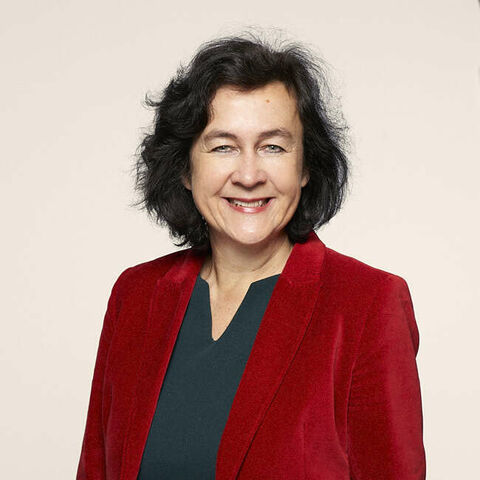ESG, een radar in een complex kluwen
Environment, Social en Governance (oftewel Milieu, Sociaal en Bestuur), deze 3 begrippen maken de kern uit van ESG-rapportering. Dit naslagwerk legt alle niet-financiële impactdomeinen, risico’s en kansen vast die inherent zijn aan de dagelijkse activiteiten van een bedrijf. Mits wat vrije interpretatie ligt ESG in lijn met oudere afkortingen zoals PPP (People, Planet, Profit) en GRI (Global Reporting Initiative), maar daar stoppen de afkortingen nog niet. “Mijn oren toeten nog na”, geeft een deelnemer toe na onze laatste partnermeeting van het Competence Center Next Generation Work.
Niet verwonderlijk, ESG is immers onderdeel van de ESRS (The European Sustainability Reporting Standards), die op hun beurt de technische criteria vormen onder de CSRD (Corporate Sustainability Reporting Directive). Beide systemen passen in de EU Taxonomy of Sustainable Activities, een taxonomie die bepaalt wat duurzaam is en wat niet, onder de ruimere paraplu van de European Green Deal, die de EU tegen 2050 klimaatneutraal wil maken op een sociaal rechtvaardige manier.
Een complex kluwen dus, waarin een kat haar jongen niet meer dreigt terug te vinden. Dat beamen veel people managers die overdonderd zijn door de techniciteit van duurzaamheidsrapportering, en die deze taak niet zien als hun verantwoordelijkheid. “De Legal, Marketing of Finance-afdeling moet deze klus maar klaren” klinkt het, of “Laten we ons vooral bezighouden met de E van ESG. Dat lijkt ons een stuk makkelijker dan de S, en zo blijft HR buiten het vizier.”
Materiële thema’s
Toch zitten er in die S van ESG heel wat opportuniteiten om typisch ‘mensgerichte thema’s’, die al jaren op een duurzame HR-agenda staan, nieuw leven in te blazen. zoals sociale dialoog, work-life-balance, diversiteit en inclusie, gezondheid en veiligheid, training en ontwikkeling. Binnen de duurzaamheidsrapportering gelden zij eerder als ‘materiële thema’s’: relevante onderwerpen die aandacht verdienen.
Klassieke thema’s krijgen zo een nieuwe urgentie (want niemand ontsnapt aan duurzaamheidsrapportering) en nieuwe zuurstof, zowel wat betreft de formulering van ambitieuze, meetbare doelstellingen als het verbinden en aligneren van deze thema’s met het ruimere duurzaamheidsdenken binnen de organisatie.
S-rapportering als hefboom voor (meer) duurzaam HRM?
Ambities formuleren, kwantificeren en rapporteren lijkt gemeengoed binnen de E van ESG. Waarom is die uitdaging dan zo veel groter voor de S-thema’s? Deze vraag zorgde voor veel animo op onze laatste partnermeeting. De deelnemers verwezen onder andere naar koudwatervrees voor cijfers en de overbevraging van HR. Toch werd HR even snel in een voortrekkersrol geduwd.
Er is een kans om ambities te formuleren voor ons personeelsbeleid over hoe we gezondheid en veiligheid willen implementeren en hoe we willen samenwerken met gemeenschappen. Laten we deze dialoog over een duurzame en toekomstgerichte HR-strategie nu al met de business starten, in plaats van te wachten tot een auditor ons dit oplegt.
Het ESG-kader, en vooral S-rapportering, creëert met andere woorden kansen voor duurzame HR-initiatieven en een pushbeweging om ze strategische op de duurzaamheidsagenda te plaatsen.
Datagedreven samenwerken
Een breed gedragen duurzaamheidsaanpak eindigt niet bij de afbakening van materiële thema’s, maar vereist een duurzame implementatiestrategie, waarbij samenwerking én betrokkenheid centraal staan. HR, de duurzaamheidsmanager, de auditor en de marketing- en communicatieafdeling moeten meer uit hun silo’s stappen, ter bevordering van de cohesie, duidelijkheid en het draagvlak van het duurzaamheidsverhaal.
Data verzamelen is daarbij cruciaal, want met deze inzichten kunnen bedrijven impact zichtbaar maken, risico’s in kaart brengen en nieuwe kansen ontdekken. HR kan een sleutelrol spelen door data-inzichten om te zetten in gerichte beslissingen op het vlak van diversiteit, training, welzijn en werktevredenheid. De verleiding blijkt nochtans groot om dataverzameling en -rapportering uit te besteden aan collega’s in andere domeinen, maar daarmee geeft HR ook de kern van zijn opdracht uit handen, namelijk vanuit een geïntegreerde benadering sturen op goed werkgeverschap.
HR-professionals zouden nu het voortouw moeten nemen en de CSRD als hefboom gebruiken om duurzaam, strategisch HRM te bevorderen, door people analytics te omarmen.
Een brede en innovatieve scope
Buiten de typisch mensgerichte thema’s zijn er nog verschillende andere actievelden die ESG zijn brede, innovatieve scope geven, zoals green HRM en green mobility. En naast een thematische verbreding, kan het ESG-framework ook concrete actieterrein van HR helpen verruimen. Zo ontwikkelde Patagonia bijvoorbeeld een code of conduct voor alle fabrieken waar het merk mee samenwerkt, gebaseerd op de standaarden van de International Labor Organization (ILO). Een dergelijk S2-perspectief maakt het HR-vizier breder: de duurzame HR-aanpak geldt niet enkel voor personeel op de eigen payroll, maar ook voor interimkrachten, freelancers én de ruimere waardenketen (zoals onderaannemers en leveranciers).
CC Next Generation Work & ESG, een mooi verhaal
Sinds 2012 vervult het Competence Center Next Generation Work een pioniersrol in duurzaam HRM, duurzame loopbanen en arbeidsrelaties, met aanhoudende aandacht voor actuele thema’s, zoals welzijn, re-integratie na burn-out, diversiteit en inclusie, klimaatadaptatie, een leven lang leren, total talent management en employee voice versus silence. We beogen zowel kenniscreatie als -valorisatie, steeds in een duurzame samenwerkingsrelatie met onze kennispartners SDWorx, Aquafin, bpost, B-tonic, elia, Baloise en Argenta. Ook interesse in een partnerschap? Neem gerust contact op met ans.devos@ams.ac.be.







